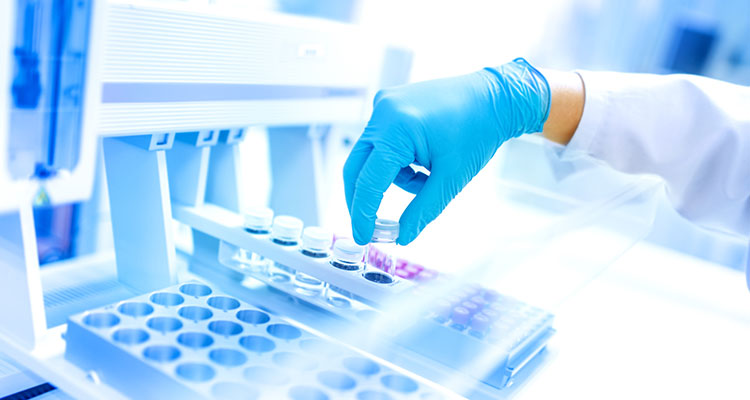Introduction
Pharmaceutical stability studies are an essential component of drug development and regulatory approval. Stability testing allows you to understand how your product behaves under different conditions, such as temperature and humidity, and helps you to determine its shelf life and storage conditions.
At Synergy Bioscience, we offer pharmaceutical stability program development and testing services to help you achieve product development needs and regulatory requirements. In this article, we’ll explain the importance of pharmaceutical stability testing and how it can help you develop safe and effective drugs.
What Is Pharmaceutical Stability Testing?
Pharmaceutical stability testing is the process of evaluating a drug product’s chemical and physical properties over time. Stability testing is done to ensure that the product maintains its identity, strength, quality, and purity over the course of its shelf life. The testing involves exposing the drug product to various environmental conditions and monitoring its stability over time.
Stability studies typically include the following assessments:
- Physical appearance
- Potency
- Purity
- pH
- Dissolution rate
- Presence/absence of degradation products
- Microbial limits
- Sterility
By conducting these studies, pharmaceutical companies can identify potential degradation pathways and develop strategies to mitigate them.
Importance of Pharmaceutical Stability Testing
Pharmaceutical stability testing is essential for various reasons. Some of the reasons are:
- Regulatory Compliance
Stability studies are required by regulatory bodies such as the FDA to ensure that the drug product is safe and effective. The FDA requires stability data to support the product’s expiration dating period and storage conditions. Stability data is also used to support changes in the manufacturing process and to evaluate product quality throughout its shelf life.
- Quality Assurance
Stability testing helps ensure that the product maintains its quality throughout its shelf life. By understanding the product’s stability, pharmaceutical companies can identify potential degradation pathways and develop strategies to mitigate them. The testing also helps to identify any changes in the product’s properties, such as its color, odor, or taste.
- Cost-Effective
Stability testing is a cost-effective way to ensure that the product maintains its quality throughout its shelf life. By understanding the product’s stability, pharmaceutical companies can develop appropriate storage conditions, reducing the likelihood of product degradation and the need to discard expired products.
- Risk Management
Stability testing helps identify potential risks associated with the product’s degradation. By identifying degradation pathways and their kinetics, pharmaceutical companies can develop strategies to mitigate them, reducing the risk of adverse events and recalls.
Types of Stability Testing
There are several types of stability testing that pharmaceutical companies can perform. The most common ones include:
- Real-Time Stability Testing
Real-time stability testing involves exposing the drug product to the recommended storage conditions and monitoring its stability over time.
- Accelerated Stability Testing
Accelerated stability testing involves exposing the drug product to harsher conditions than recommended storage conditions and monitoring its stability over a shorter time period. This testing is done to evaluate the product’s stability under extreme conditions and to accelerate the stability data generation process.
- Forced Degradation Testing
Forced degradation testing involves exposing the drug product to extreme conditions, such as heat, light, humidity, and low and high pH conditions to induce product degradation. The testing here is done to identify the product’s degradation pathways and to develop strategies to mitigate them.
Relationship between Lyophilization and Product Stability
Lyophilization, also known as freeze-drying, is a process commonly used in the pharmaceutical industry to increase the shelf life of a drug product, by removing water content from the drug product. Lyophilization can improve product stability and extends its shelf life.
When conducting stability testing on lyophilized products, it is important to consider several factors, including the storage conditions and the stability-indicating methods used. The storage conditions used during stability program should be representative of the intended storage conditions for the drug product.
Analytical Chemistry and Stability Testing
In stability program, analytical chemistry testing is used to measure the drug product’s chemical and physical characteristics, such as its purity, potency, and degradation products. Analytical methods used in stability testing include high-performance liquid chromatography (HPLC), gas chromatography (GC), and mass spectrometry (MS), among many others.
Testing Laboratories for Stability Testing
Stability testing requires specialized equipment and expertise, and many pharmaceutical companies outsource their stability testing to CRO companies, like Synergy. At Synergy, we are equipped with state-of-the-art facilities and highly trained staff who are experts in conducting stability testing.
In conclusion
Pharmaceutical stability testing is a critical component of the drug development CMC section that companies must submit to the regulatory bodies, as part of the commercialization license application, to assure product safety, efficacy, and quality. Through stability studies, pharmaceutical companies can determine how the product will behave under different conditions and develop appropriate storage and handling recommendations. In addition, lyophilization can be an effective method to improve the stability and extend the shelf life of drug products.
At Synergy Bioscience, we have extensive experience in pharmaceutical product development, stability testing, lyophilization, and regulatory compliance requirements. Our team of experts can help your company navigate the complex regulatory environment and develop products that meet the highest standards of safety and efficacy. We offer a range of laboratory services, including stability testing, analytical chemistry, and lyophilization, to support all aspects of drug development. By leveraging our technical and scientific expertise, we can help you achieve your goals in a faster, more compliant, and more efficient way.
If you would like to learn more, please contact us.
